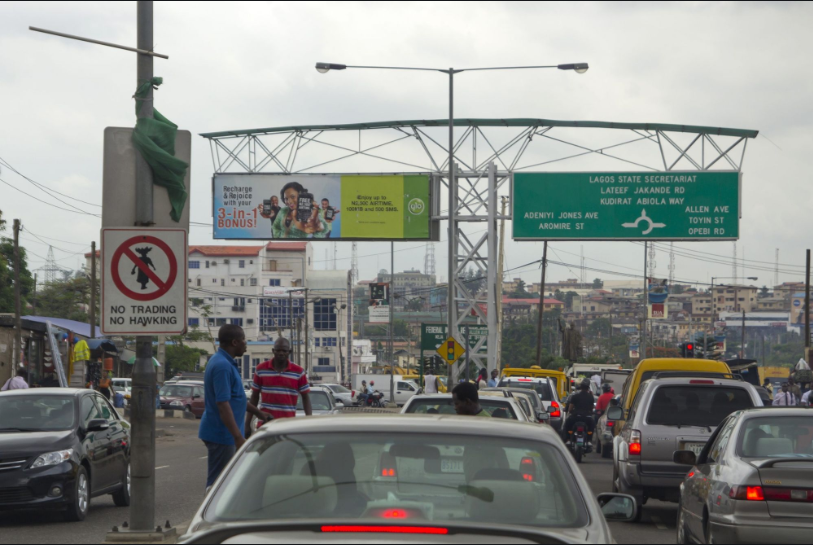“Over the last two months, I’ve purchased data subscriptions four times. The other day, I acquired 112GB for ₦16,000, only to see it depleted in less than two weeks. I also invested ₦50,000 in a 400GB plan that was meant to last three months, but it barely endured for a month,” Lengdung Tungchamma, a data scientist and digital creator, told Bendada.com.
Tungchamma relies on MTN’s 4G and 5G routers for connectivity. He acknowledged that his data usage is on the heavier side, but he finds the situation concerning. He said, “I agree that I am a heavy data user, but this is absurd. It was only when I observed the rapid depletion of data that I decided to scrutinise my usage. What’s evident to me is that this situation is unsustainable.”
Nigerians, like Tungchamma and myself, must dedicate approximately three hours of work each month to afford mobile internet, as indicated by the 2023 Digital Quality of Life Index. This is a staggering 11 times more than the situation in Luxembourg, which boasts the world’s most affordable mobile internet, with Luxembourgers needing just 16 minutes of work per month to cover it.
Moreover, Nigeria’s internet quality is notably sluggish, with average mobile internet speeds clocking in at 47 Mbps. It is worth noting that the fastest mobile internet, found in the UAE, reaches speeds of 310 Mbps, while the slowest, as seen in Venezuela, barely achieves 10 Mbps. “The internet is also very slow in many African countries. Even if people can afford the internet, they still face limitations in what they can do,” according to Agneska Sablovskaja, Surfshark’s lead researcher.
As of 2022, Nigeria had nearly 84 million internet users. Aside from the high cost and low quality of the internet, several users like Tungchamma have to deal with data depletion. This occurs when a subscriber exhausts his or her data bundle before the expiration date or when more data volume is utilised for accessing online content.
“What is worse is that no one explained anything from MTN, the data cost has gone higher and then the value has dropped massively,” Tungchamma added. He plans to acquire a Starlink hardware, for other internet users in the country who cannot afford alternatives like Starlink, the depletion remains a concern.
According to the Nigerian Communication Commission (NCC), the increased internet depletion is due to “the global explosion of new technologies”. “Going by the documented upsurge in the use of computers, smartphones, smartwatches, and other technology-dependent devices which have given consumers access to multi-functional comfort and utility,” says Muhammed Babajika, the director of licensing and authorisation at the NCC. “It is within the context of the subscription and usage of the internet that consumers are experiencing what they refer to as abnormal depletion of their data.”
Edoyemi Ogoh, NCC’s director of technical standards and network integrity, argues that some of the reasons for internet depletion are non-technical. Ogoh said some of these non-technical factors include low purchasing power leading to small data bundles, social media growth, lack of awareness, and sub-standard devices.
In March, NCC said it would introduce measures to curb data depletion for telecom consumers. Seven months later, no specific strategy has been announced.
While efforts to curb data depletion are yet to be disclosed, telco operators plan to increase the cost of the internet due to the high cost of running their businesses. According to local media, the Punch Newspaper, the cost of powering base stations in Nigeria and the overall telecommunication services has hit an estimated ₦38 billion per month following a 55.16% year-on-year increase in the cost of diesel.
“Power is key. It determines everything,” says Gbolahan Awonuga, head of operations at the Association of Licensed Telecommunications Operators of Nigeria (ALTON). “Even though there is an increase in virtually the price of everything in the economy, telecom tariff remains the same. This means that there are a lot of difficulties. Revenue has reduced and prices of other inputs have changed, but tariffs are still the same.”
“For our industry to remain sustainable, our prices have to reflect the cost of production. This goes without saying that we will also review rates at the appropriate time after consultation with all the stakeholders to reflect the current cost of inputs,” Awonuga added.
Recall that last year, NCC asked Nigerian telcos to reverse a 10% tariff hike that was meant to cover rising costs. Earlier this year, the telco regulator asked operators to adopt renewable energy to minimise costs. “Transitioning to renewable energy is predicted to result in a lower cost of operation as operators will be able to save on the cost of diesel, which accounts for a large chunk of the costs incurred by these licensees,” Umar Danbatta, the former executive vice chairman of NCC, said.
On Wednesday, President Bola Tinubu appointed Aminu Maida to replace Danbatta as NCC’s CEO and deputy vice chairman. Maida previously worked as the executive director of technology and operations at Nigeria Inter-Bank Settlement System Plc (NIBSS), Nigeria’s central payment switch.
Addressing internet depletion will be one of the important tasks that Maida will have to tackle in his new office.
Get passive updates on African tech & startups
View and choose the stories to interact with on our WhatsApp Channel
Explore




